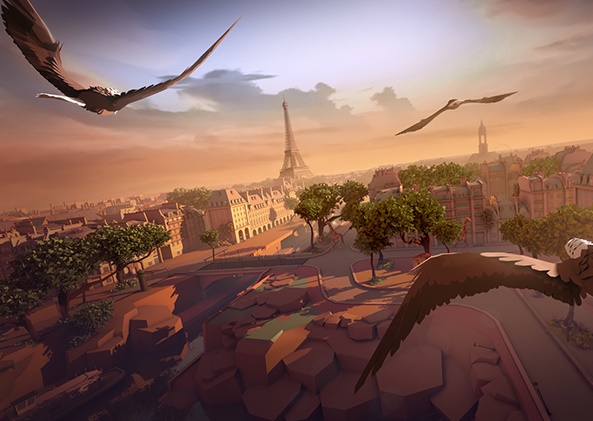Opinion by Matt S.
Ubisoft is currently in the middle of a major marketing blitz for Watch Dogs 2. It dominated the PAX Australia Ubisoft booth, it has been heavily promoted through the company’s PR efforts all year. It’s obviously a major game for the company, especially given there’s no Assassin’s Creed.
Almost (not quite, but almost) released with no fanfare was Eagle Flight. This little VR game, developed by Ubisoft Montreal, with as basic a tool as Unity, received relatively little promotion. In fact, I wasn’t even aware it was in development (or I had forgotten that it was) until I saw mention of its impending release on the PlayStation blog.
I’m working on a review now, so I won’t give away too much of my deeper views on the game, but in short: I love it. Love it, love it, love it. Its release around the time America made the most insane political decision in history has helped too; I’ve been able to throw the PSVR goggles on and genuinely escape to a world where there are eagles and other animals, but no humans.
To read on, please log in to your DDNet Premium account:







